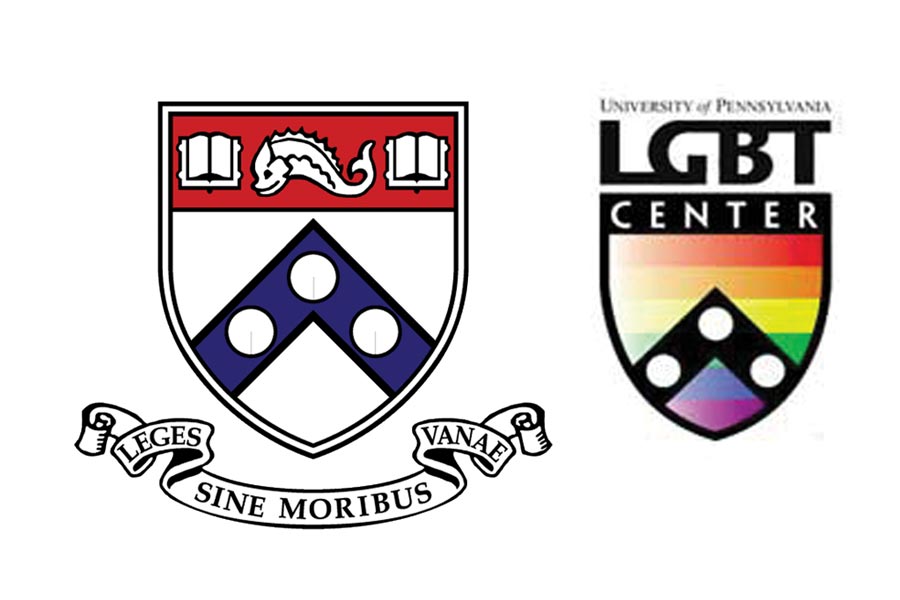After three months of gathering information for the Campus Pride Index, the University of Pennsylvania earned a perfect score as an LGBT-friendly campus.
“In a sense, it took years of work to have the right answers, to change policies and make sure the programs are what they should be,” said Bob Schoenberg, director of the Penn LGBT Center. “To begin with, just having the kind of facility, staff, budget, programs and services we have here has really taken 30 plus years.”
Penn ranked in the top 25 in the latest edition of the Campus Pride Index, which came out in August.
Seven other schools earned a perfect score of 5, including Montclair State University and Rutgers in New Brunswick.
The only other Pennsylvania institution, Penn State University, earned a 4.5, with improvements called for in the areas of LGBT institutional support and academic resources.
For full Campus Pride Index results, visit www.campuspride.org/2015-top-25-list.
Campus Pride has highlighted colleges and universities for the past seven years for LGBT-inclusive policies, programs and practices. Public and private colleges with at least 1,600 students were surveyed in several categories: policy, institutional commitment, academic life, student life, housing, campus safety, counseling and health and recruitment and retention.
This year was the first time higher education institutions had to meet stricter benchmarks to earn a perfect score. They put more focus on providing support for transgender and gender-nonconforming students.
“Most campuses want to know what they can do better, but they don’t necessarily have a pathway,” said Shane Windmeyer, executive director of Campus Pride and creator of the index. “Many campuses are using the Pride Index to put in their strategic plans. They have used the benchmarks as a way to improve LGBT life on campus.”
Schoenberg said the earlier rankings asked universities to self-report on a variety of yes-or-no questions, but did not need supporting evidence.
This year’s rankings required schools to provide links to policies and documented programs that support the LGBT community.
“You couldn’t just say ‘Yes, we have a nondiscrimination policy,’” Schoenberg said. “You had to send a link to the nondiscrimination policy to show the exact language.”
“They were much more rigorous in investigating the campuses,” he said. “It took us quite a while to provide all the data.”
Schoenberg said it was gratifying to be able to answer nearly 100 questions affirmatively.
“It feels good to students to be in a place they know is inclusive,” Schoenberg said, noting that even non-LGBT people feel a strong alliance because of friends or family members in the community. “It’s a very good recruiting tool.”
He said when a school has a reputation for supporting LGBT-inclusiveness, it tends to mean the school supports inclusive practices for other minority groups as well.
Some of the successes at Penn include the Preferred Name Initiative, which helps gender-nonconforming students change their names in school documents.
There is also a push to create single-use gender-nondescript bathrooms on campus.
The LGBT Center provides a travel fund to send students to things like the Gay and Lesbian Medical Association Conference at the end of September in Portland, Ore. and the Creating Change Conference in January in Chicago.
Schoenberg said the Campus Pride Index confirmed areas of improvement for Penn as well. He said the LGBT Center will redouble its efforts with faculty.
“We’re trying to increase the number of out LGBT faculty members and faculty who are doing substantial research in areas of interest to the LGBT community,” Schoenberg said. “It’s still fairly rare to see out LGBT members at the front of the classroom.”
He said that work requires training search committees to be sensitive to sexuality and gender identity, instructing hiring officials about where to place ads for open positions to attract LGBT academics, and putting policies in place to make it easier for potential faculty members to support their partners who come with them.
“Penn has always been a stand-out,” Windmeyer said. “They’ve been a leader with an LGBT Center director who’s very well respected across the nation.”
Windmeyer said schools throughout the Northeast have a reputation of inclusive LGBT policies, events and awareness, but added there is still work to be done.
“We still need to be vigilant in looking at the entire LGBT spectrum,” he said, highlighting gender non-binary people.
Campus Pride is putting more effort into promoting retention work at colleges and universities.
Windmeyer said young members of the LGBT community have a higher risk of substance abuse, depression and suicide. He said tracking their academic standing and preventing people from dropping out should be a priority.
Only 12 U.S. colleges give students the option to identify as LGBT on admission forms, Windmeyer said. He would like to see that number increase so researchers can analyze their academic trends.
The State University of New York System has already reached out to Campus Pride to discuss the best way to track the data.

